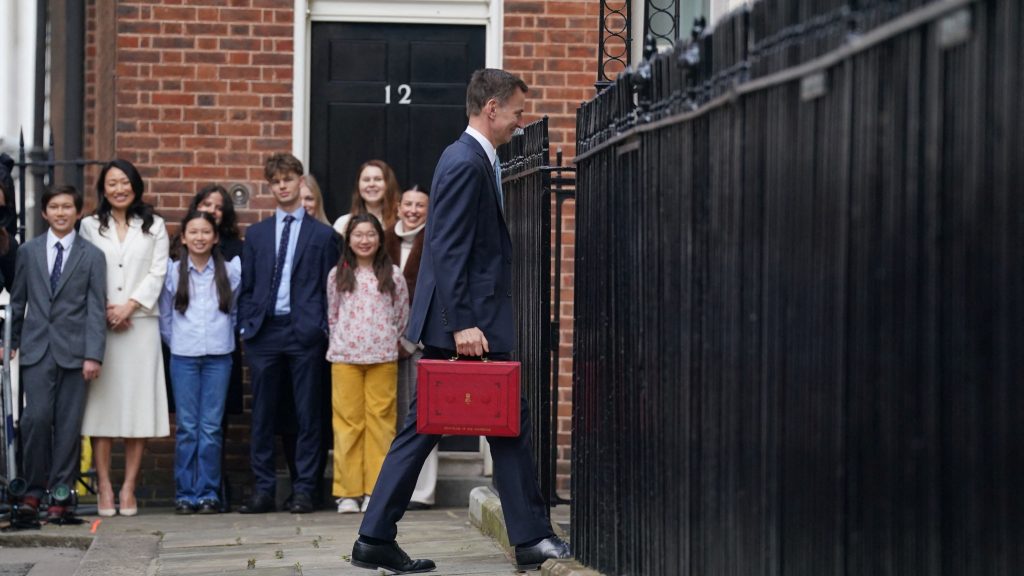
British finance minister Jeremy Hunt said he would cut tax for workers in a budget statement that was designed to give hope to Prime Minister Rishi Sunak’s Conservative Party ahead of an election expected later this year.
Below are details of Hunt’s plans, including how he will fund the giveaway, plus new forecasts for growth and debt:
WINDFALL, VAPING, FLYING AND PROPERTY
To pay for the tax cut, Hunt extended by one year a windfall levy on energy firms’ profits, and said the government would raise a tax on vapes while increasing the duty on tobacco. He also said non-economy flights would be hit with higher duty.
In the most politically significant change, Hunt said he would charge tax on “non-domiciled” people living in Britain for more than four years on their income from abroad.
He also said he would cut the rate of property capital gains tax, which usually applies on the sale of second homes, to 24% from 28%.
GROWTH
Hunt said Britain’s official budget watchdog – the Office for Budget Responsibility – now expected the economy to grow by 0.8% this year and by 1.9% next year – 0.5% higher than its previous forecast in November. The OBR then expects growth to rise by 2% in 2026, 1.8% in 2027 and 1.7% in 2028.
DEBT AND DEFICIT
Hunt said in 2022 the OBR had forecast headline debt would rise to above 100% of GDP. He said it was now forecast to fall every year to 94.3% by 2028-29.
Public sector borrowing is forecast to fall from 4.2% of GDP in 2023-24, to 3.1%, 2.7%, 2.3%, 1.6% and 1.2% in 2028-29.
TAX
From April, National Insurance for employees and the self-employed will be cut by 2 pence in the pound. Hunt said it would mean an additional 450 pounds a year for the average employee or 350 pounds for someone self-employed.
INFLATION
New forecasts from the OBR show inflation will fall below the 2% target in just a few months’ time. Hunt said that was nearly a whole year earlier than forecast in the Autumn Statement.
(Editing by Toby Chopra)